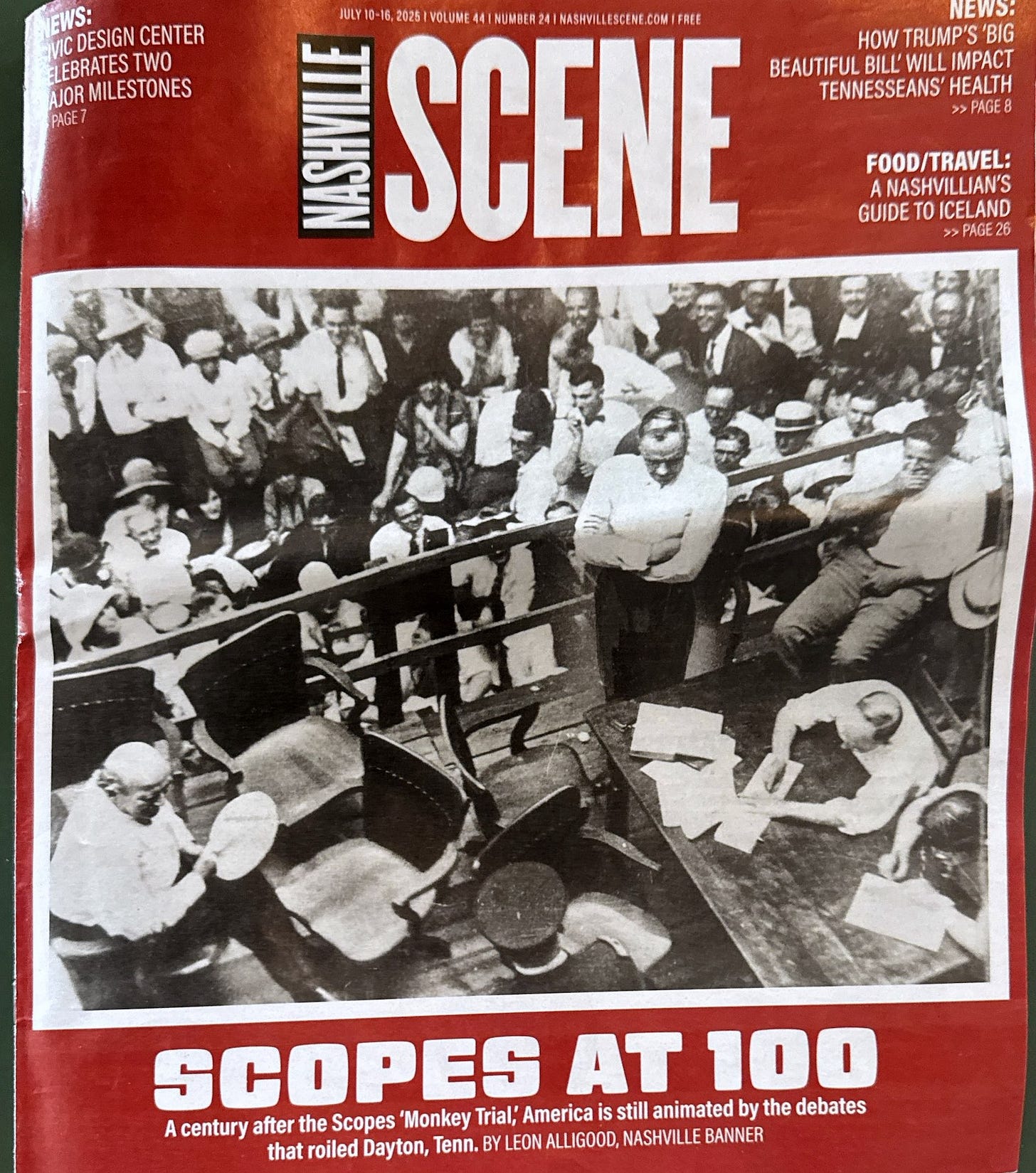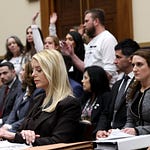Journalism may be the first draft of history, but not all reporting captures the weight of the historical moment. Here’s my vow: All Rise News will never lose sight of the stakes.
One hundred years ago today, a Tennessee jury found young science teacher James Scopes guilty of violating a state law banning the teaching of evolution, and the judge presiding over the case ordered him to pay a $100 fine.
Scopes had the last laugh: The Tennessee Supreme Court overturned the guilty verdict and fine on a technicality, but it upheld the constitutionality of the Butler Act’s ban on teaching evolution, which the state later repealed. The eight-day trial was dramatized in the play “Inherit the Wind,” which was later turned into the classic Hollywood film of the same name. The play and the movie are cautionary tales of unquestioning belief. Despite losing the case, Scopes and his lawyer Clarence Darrow won the verdicts of history and public opinion.
I was reminded of the case’s centennial last week in The Nashville Scene, an alternative newsweekly that featured it in a compelling cover story. I picked up a copy of the paper the day before the most recent hearing in the case of Kilmar Abrego Garcia in Nashville, a roughly 2.5-hour drive from Dayton, Tenn., the site of the Scopes trial.
The subject came up today during my Substack Live conversation with my friend and former colleague Tom LoBianco on a range of topics.
Education and freedom of inquiry remain on trial as we mark that centennial.
On Monday, the Trump administration went to court in two cases where it stands accused of attacking academic freedom by cutting billions of dollars from Harvard University and targeting pro-Palestinian protesters for their speech. According to the Washington Post, the American Council on Education’s vice president and general counsel Peter McDonough framed Harvard’s fight in stark terms: “Freedom of speech is on trial. Due process is on trial.”
U.S. District Judge William Young, a Ronald Reagan appointee presiding over the case of the student protesters, noted that Trump effectively uses free speech for his purposes: “Whether he recognizes that other people have the right to free speech is questionable,” Young added caustically.
Harvard and the student protesters are still awaiting rulings in their cases, but the issues at the heart of both cases evoke the words of Scopes’ fictionalized lawyer Henry Drummond in “Inherit the Wind” when asked what he considers holy. “The individual human mind,” Drummond replies.
In a remarkable investigation today, The Washington Post found that the Trump administration stands accused of violating court orders in one-third of the cases filed against the government. The most famous example of flouting court orders is the government spiriting Abrego to a dangerous prison in El Salvador, despite a court order blocking his deportation there. Trump relies on a broad reading of his executive power and tries to shut down any inquiries into his actions with incantations of gang violence and national security.
Those who defy the Trump administration’s dogmas make themselves targets of retribution. The Associated Press briefly lost access to the White House because it called The Gulf of Mexico by its historic name. Major law firms that advocated against Trump’s legal positions found themselves in his crosshairs. Hundreds of scientific researchers lost their funding for violating undefined anti-diversity or anti-“gender ideology” edicts, having to go to federal court to resume their medical research. Harvard and the student protesters are just the latest iteration of a pattern that has played out from the beginning of Trump’s second term.
At stake in Trump’s ongoing standoff with the federal judiciary is the right to question the government and its decisions about who to charge, deport, or defund, outside the democratic and legal processes.
In the video above, Tom LoBianco and I discuss those issues at length — sometimes with strong language. As the fictional lawyer of “Inherit the Wind” put it, “Language is a poor enough means of communication. I think we should use all the words we've got. Besides, there are damn few words that anybody understands.”















